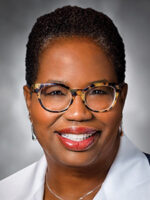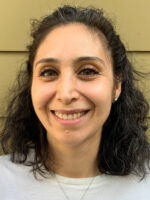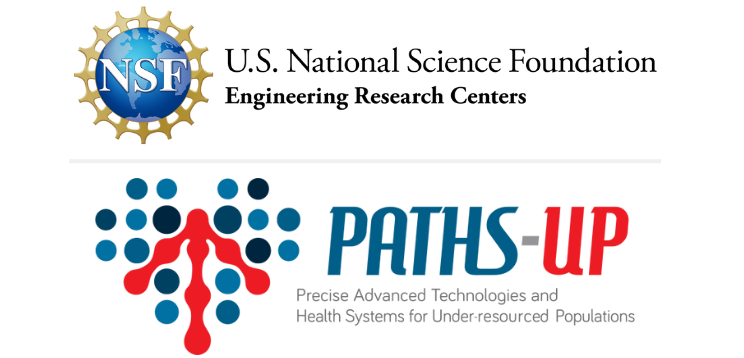
Stephanie G. Adams, PhD
Dr. Stephanie G. Adams is the Dean of Erik Jonsson School of Engineering and Computer Science and Lars Magnus Ericsson Chair in Electrical Engineering. She is also a professor of systems engineering. Dr. Adams stands as a trailblazer in the field of engineering education. Recognizing her outstanding contributions, she was honored with a National Science Foundation (NSF) Faculty Early Career Development (CAREER) award in 2003, dedicated to investigating the dynamics of effective teamwork within the engineering classroom. Beyond her pioneering work on teamwork and its effectiveness, Adams possesses expertise in diverse research areas such as fostering inclusivity in STEM (science, technology, engineering, and mathematics), advancing faculty and graduate student development, exploring global education initiatives, and delving into quality control and management.

Isabel Cardenas-Navia, PhD
Dr. Cardenas-Navia currently holds the position of senior director of research at Workcred, where she spearheads the advancement of the organization’s research agenda while addressing critical issues and requirements in workforce credentialing.
Before assuming her role at Workcred, Dr. Cardenas-Navia served as the vice president of programs and, earlier, as the director of emerging workforce programs at the Business-Higher Education Forum (BHEF). Throughout her career, she successfully led and facilitated projects that brought together Fortune 500 employers and higher education institutions. Her contributions extended to producing innovative research on workforce challenges within emerging technical fields. Notably, she played a pivotal role in steering the development and implementation of a national strategic plan, capacity-building tools, and best practices for fostering partnerships between businesses and higher education institutions, particularly in the realm of data science and analytics.

E. Duco Jansen, MS, PhD
E. Duco Jansen is Professor of Biomedical Engineering and Professor of Neurological Surgery. Since 2013 he has served as Associate Dean for Graduate Studies in the School of Engineering at Vanderbilt University (Nashville, TN). During 2016 he also served as interim Chair of the Biomedical Engineering Department. He holds several graduate degrees in Biomedical Engineering and Biomedical Sciences. They include an M.S. from the University of Texas, an M.S. from Utrecht University and a Ph.D. in Biomedical Engineering from the University of Texas. He joined the faculty of the Biomedical Engineering Department at Vanderbilt University in 1997. He is a Fellow of the American Society for Laser Medicine and Surgery (ASLMS), the International Society for Optical Engineering (SPIE), and the American Institute for Medical and Biological Engineering (AIMBE). Furthermore he served as President of the American Society for Laser Medicine and Surgery (ASLMS), the largest and preeminent international society in the field of medical laser applications, in 2010/11 and was a member of its executive committee for 4 years. His research areas include neurophotonics, laser-tissue interaction, cellular effects of laser-induced stimuli, application of light, lasers and optical technology in medicine and biology. In the Biophotonics Center at Vanderbilt University, he develops and implements various optical technologies for diagnosing and treating both physiological and pathological processes in the human body with a specific focus on the development of optical technologies to interface with the nervous system. He has published over 200 peer reviewed papers, book chapters, and conference proceedings, mentored 15 PhD students, 20 MS students and numerous undergraduate researchers, and over the past 20 years has obtained and managed well over $ 30 million in external grants.

Kristina M. Ropella, PhD
Dr. Kristina (Kris) Ropella is Opus Dean of the Opus College of Engineering and Professor of Biomedical Engineering at Marquette University (MU). She joined the biomedical engineering faculty at Marquette in 1990 and served as chair of the Department of Biomedical Engineering from 2004 to 2013, when she was named the executive associate dean for the college prior to assuming the role of Dean. In these leadership roles, Dr. Ropella has provided vision and led strategic planning and implementation, creation of academic programs, engagement with industry, government and other academic institutions, fundraising, and community outreach.
